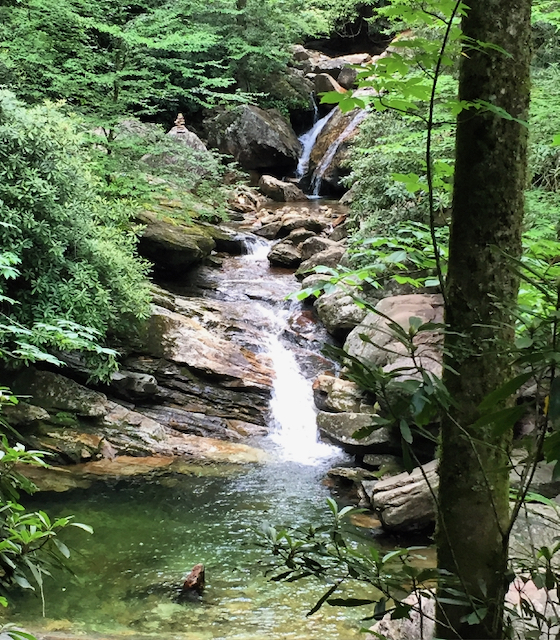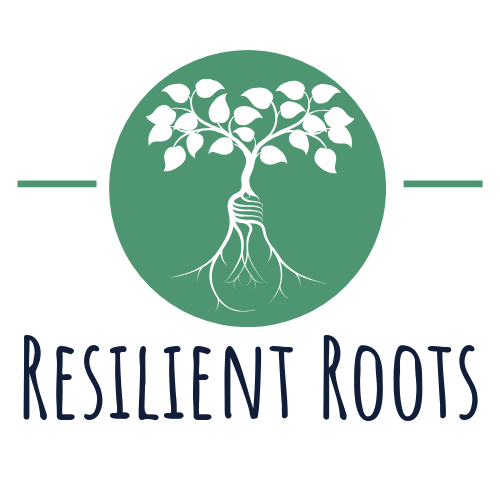
Exploring the health benefits of being in nature
Spending time in the forest can reduce stress hormones, bolster the immune system (Bae et al., 2012; Li et al., 2006), and provide mental health benefits such as increased positive emotions and liveliness (Morita et al., 2006). This is herbalism! The experience of being in nature exposes you to the visual scenes of the forest, as well as the scents. Both are evolutionarily-familiar stimuli that enhance the immune system and provide a positive sense of well-being. Whether you’re already an avid exerciser or have mobility issues or illness keeping you at home, spending more time with the forest can help you feel better. I have suggestions for you!
Getting started
If you’re just getting started with a nature exercise regime, try to increase your outdoor exposure and level of comfort with being in the woods so that you can work up to spending 2 hours in the forest, which is the amount recommended for optimal health benefit. Qing Li, one of the most well-known Japanese researchers of “Shinrinyoku” or “forest bathing,” suggesting staying in the forest (or outdoors around trees) for about 2 hours, walking slowly (about 1.5 miles total), and resting a lot (HPHP Central, 2014).
Mobility issues or allergies that prevent lengthy time outside
If you are more comfortable indoors or in an urban environment than you are in a forest setting, that is ok! There are plenty of activities you can do gain the health benefits of nature without needing to venture too far away from home. You can gain health benefits just by looking at pictures of nature! This can help give you a feeling of tranquility during stressful times (Herzog & Chernik, 2000, as cited in Takayama et al., 2014, p. 7208). Suggestions:
- Checking out library books with nature scenes
- Watching nature documentaries
- Looking at nature pictures on the internet
If you don’t have allergies to essential oils, you can also purchase outdoor-scented oils such as cedar and pine in order to simulate the olfactory experience of being outside. The practice of inhaling these essential oils, which simulates the chemicals given off by trees in the forest, can decrease stress hormone levels and increase immunity (Bae et al., 2012; Qing, 2010). Essential oils can be purchased at most natural grocery stores as well as through websites like www.mountainroseherbs.com.
Avid exerciser
In addition to the physical benefits from the exercise alone, specifically exercising in a wooded setting can help increase your sense of vitality and decrease fatigue (Takayama et al., 2014), which may help you take your exercise regime to the next level. Try to get out on a longer trails at least once a month for between 2-4 hours at a time, and supplement with shorter walks, runs, and/or hikes, especially during times of high stress. Strive to reach a goal of exercising outdoors 2-3 times per week. For longer-lasting health benefits, you might want to try camping or backpacking. A 3 day, 2 night camping trip can provide an immune boost that lasts more than 30 days (Qing, 2010)!!
Regardless of your fitness level, the medicinal benefits of nature are accessible. Aim to gradually integrate more nature and plant medicine into your life and enjoy the results!
References:
Bae, D., Seol, H., Yoon, H., Na, J. Oh, K., Choi, C.Y., &…Kim, S. (2012). Inhaled essential oil from Chamaecyparis obtuseameliorates the impairments of cognitive function induced by injection of β -amyloid in rats. Pharmaceutical Biology, 50 (7), 900-910. doi: 10.3109/13880209.2011.642886.
HPHP Central. (2014). Forest Bathing. Retrieved from http://www.hphpcentral.com/article/forest-bathing
Lee, J., Park, B.-J., Tsunetsugu, Y., Ohira, T., Kagawa, T., & Miyazaki, Y. (2011). Effect of forest bathing on physiological and psychological responses in young Japanese mail subjects. Public Health, 125 (2), 93-100. doi: 10.1016/j.puhe.2010.09.005
Li, Q., Nakadai, A., Matsushima, H., Miyazaki, Y., Krensky, A., Kawada, T., & Morimoto, K. (2006). Phytoncides (Wood Essential Oils) Induce Human Natural Killer Cell Activity. Immunopharmacology & Immunotoxicology, 28(2), 319-333. doi:10.1080/08923970600809439
Morita, E., Fukuda, S., Nagano, J., Hamajima, N., Yamamoto, H., Iwai, Y., &…Shirakawa, T. (2006). Psychological effects of forest environments on health adults: Shinrin-yoku (forest-air bathing, walking) as a possible method of stress reduction. Public Health, 121, 54-63. doi:10.1016/j.puhe.2006.05.024
Mountain Rose Herbs. (n.d.). Homepage. Retrieved from http://www.mountainroseherbs.com
Qing, L. (2010). Effect of forest bathing trips on human immune function. Environmental Health and Preventive Medicine, 15(1), 9-17. doi: 10.1007/s12199-008-0068-3
Qing, L., Kobayashi, M., & Tomoyuki, K. (2008). Relationships Between Percentage of Forest Coverage and Standardized Mortality Ratios (SMR) of Cancers in all Prefectures in Japan. The Open Public Health Journal, 1, 1-7. doi: 10.2174/1874944500801010001
Takayama, N., Korpela, K., Lee, J., Morikawa, T., Tsunetsugu, Y., Park, B., & … Kagawa, T. (2014). Emotional, restorative and vitalizing effects of forest and urban environments at four sites in Japan. International Journal of Environmental Research And Public Health, 11(7), 7207-7230. doi:10.3390/ijerph110707207

Hi Lauren,
It is nice to see scientific evidence for things I have experienced and felt for a long time. I always feel at peace and “together” when I have spent some time in or near the woods. And Kentucky has so many places to do this, even if you don’t own your own woods.
Absolutely! Grateful for all of Kentucky’s beauty!